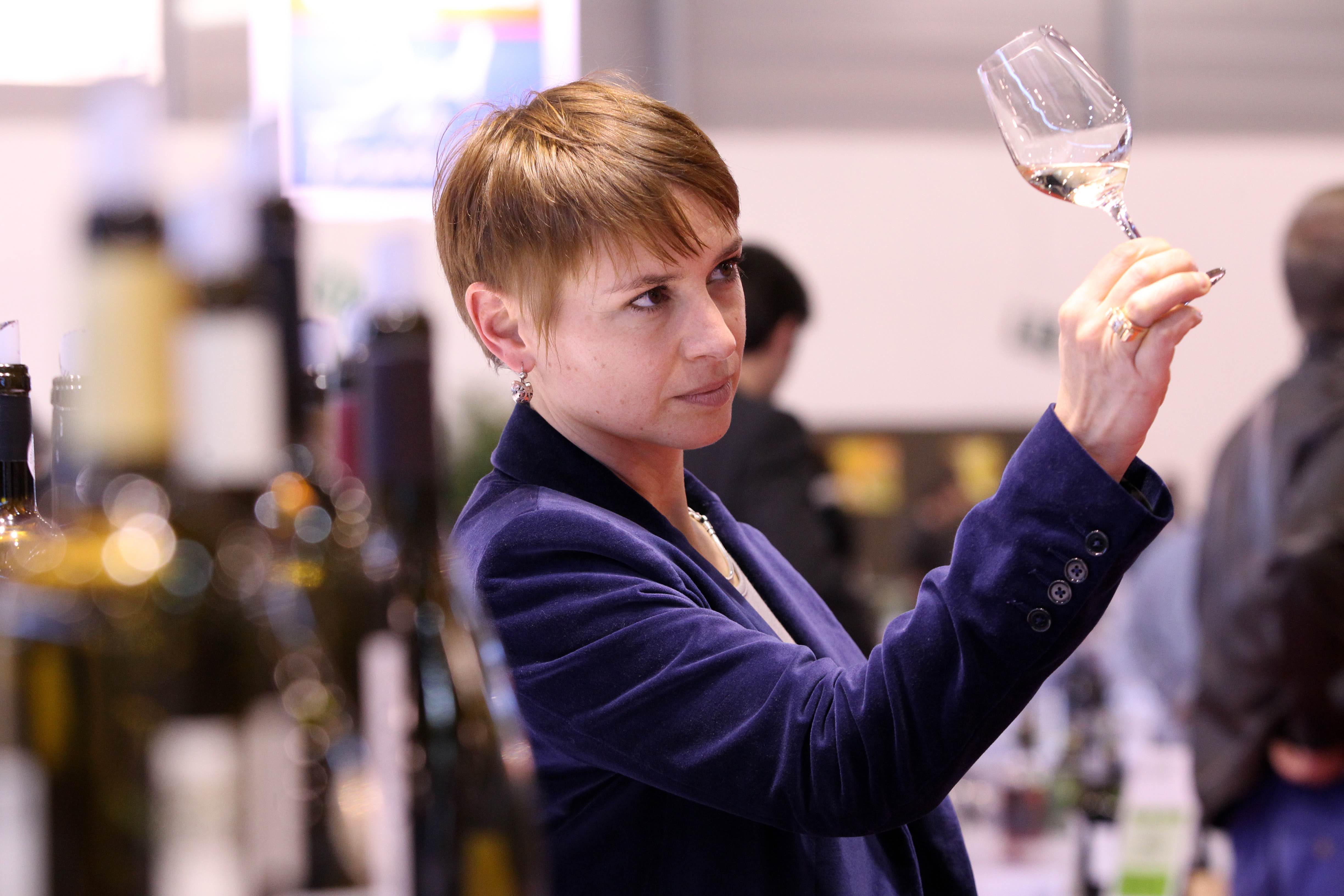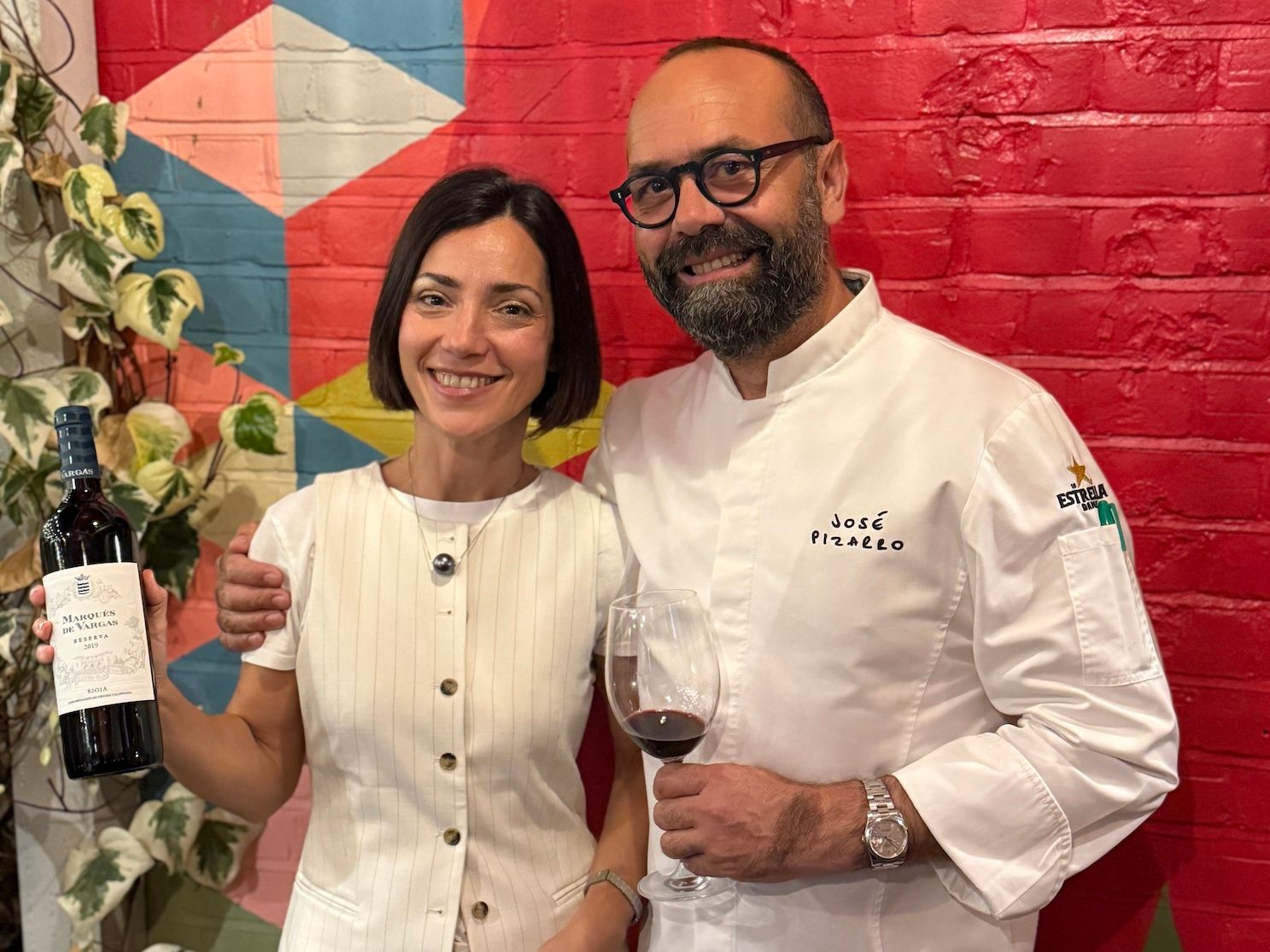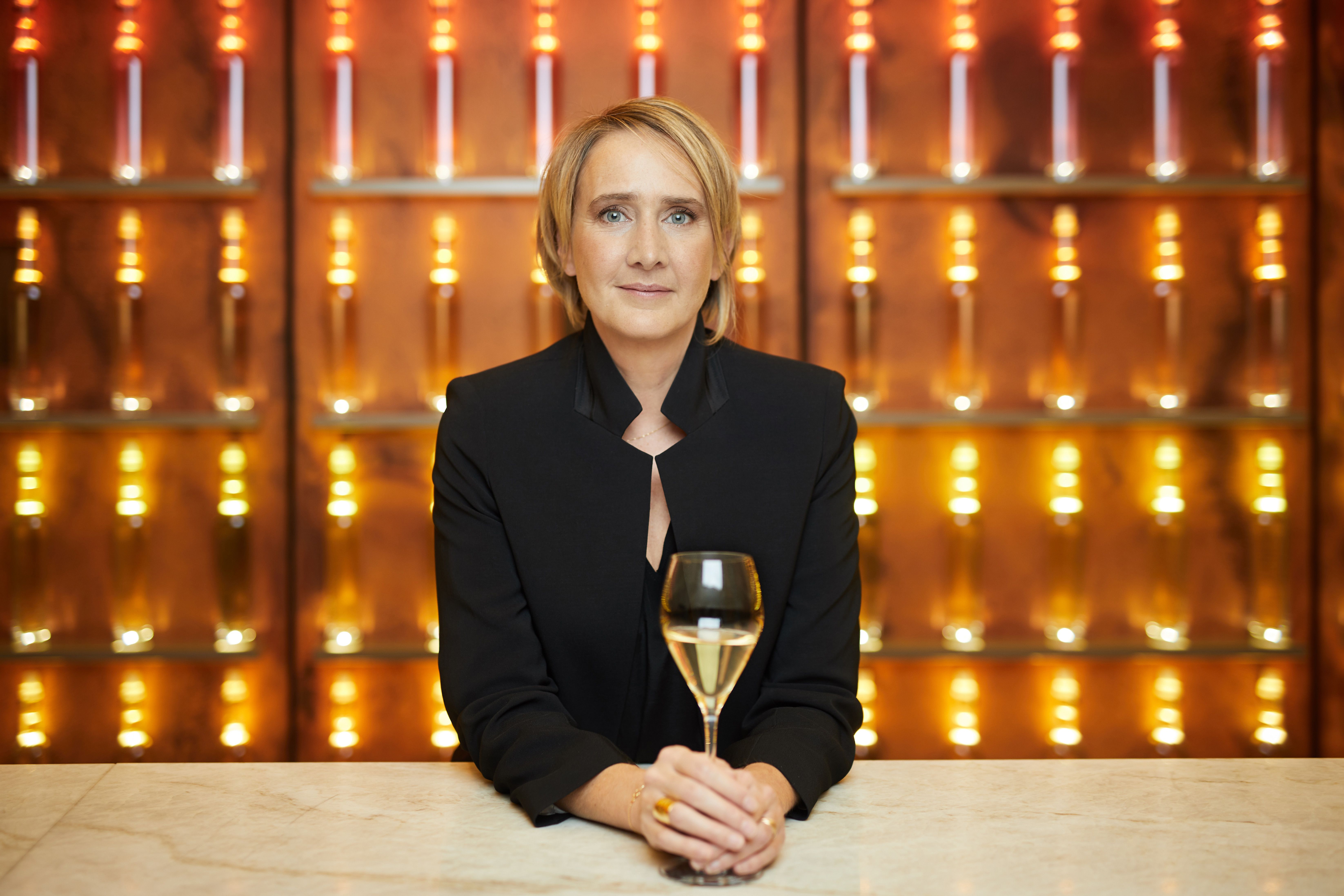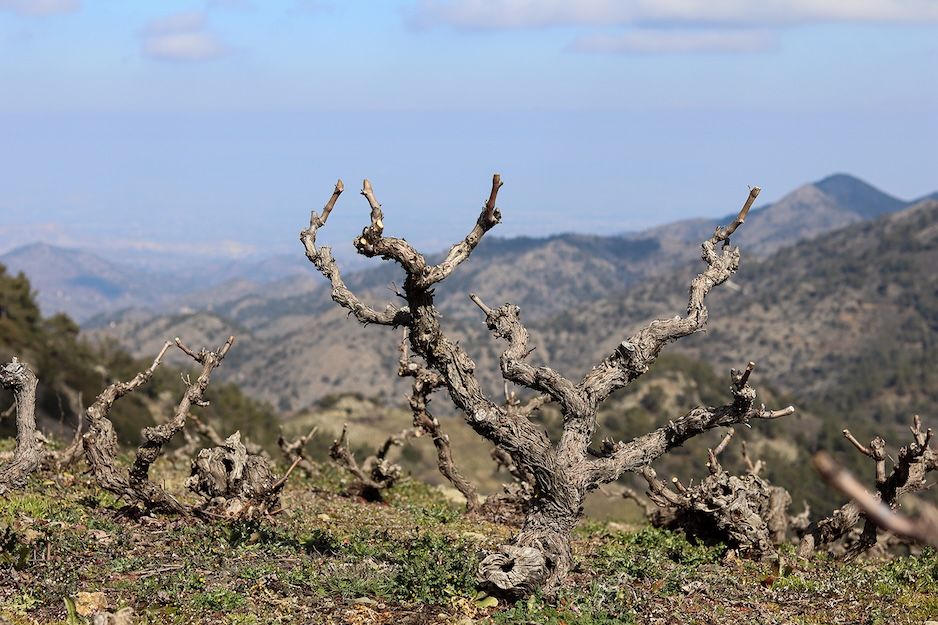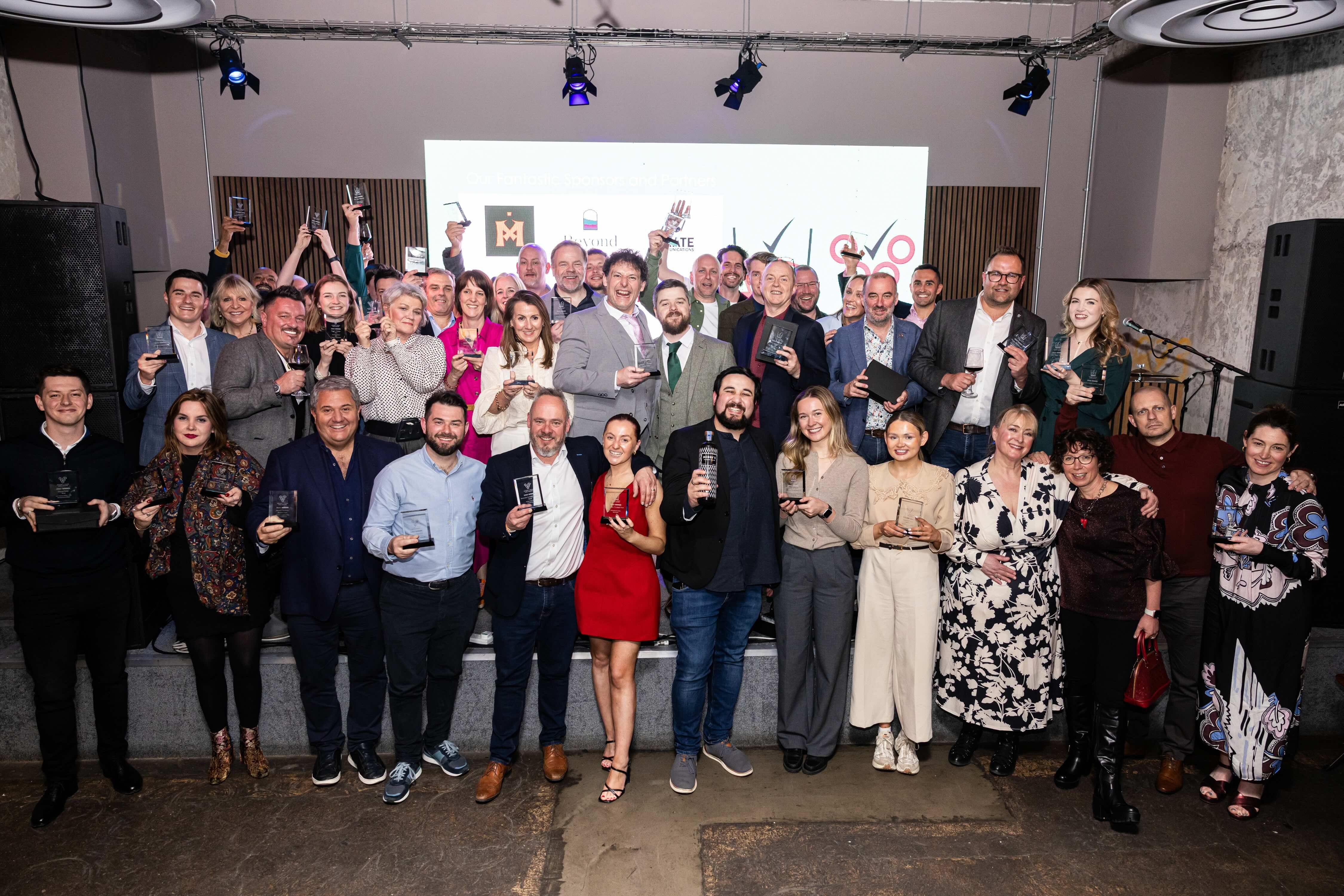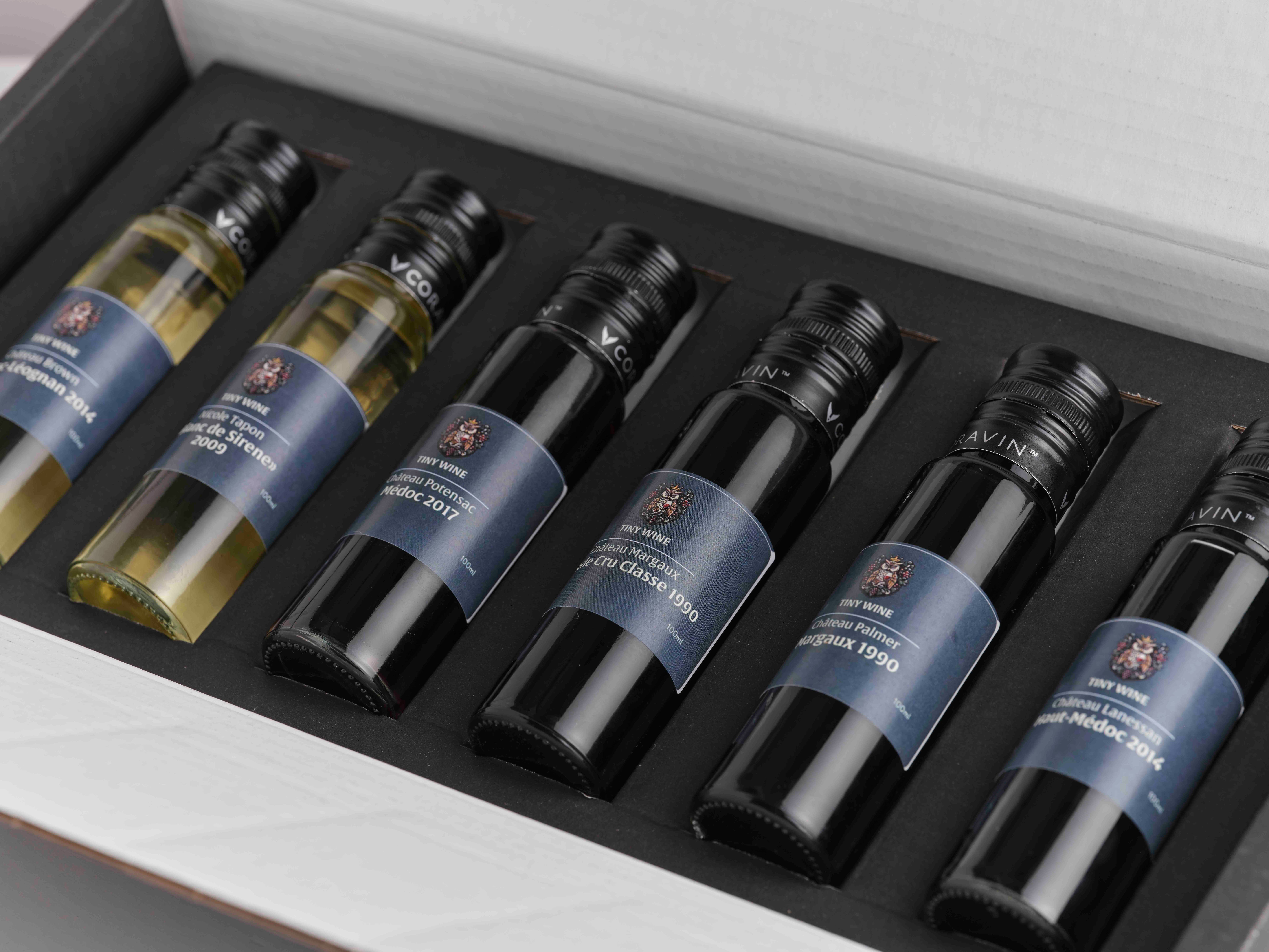How important is the UK market to Sud Vin Bio? And why?
It is a difficult market! It seems that the British consumers don’t really understand what organic wines are, and don’t really see the interest of it or is it the trade buyers who don’t, and as a consequence, don’t list those wines? Organic wines are in competition with fair trade wines too, especially those from South Africa.
It also seems that the economic downturn impacted badly the wine market and especially that kind of wines which are not entry level products: organic wines are quality wines, and as such, they tend to cost a bit more than the average wine – but not always, and especially if you compare them with the same category wines, organic or not.
But back to your question, the British market is important indeed because the British are rather environment-concerned consumers, and important wine consumers, who are increasingly experts. So there should be no reason why they would remain uninterested in organic wines. As our study shows, 40% of the British consumers who never bought organic wine say it’s because of a lack of information on the product. And among those who drink organic wines, 46% say the first reason is that it tastes good.
What are the key objectives for the organic wine industry in 2016?
Entering developing markets, domestic and abroad, and keeping the French organic vineyard growing so that we can meet the demand.
Achieving a better awareness among the public and the trade. Letting them know that organic wines are high-quality wines, produced thanks to important technical agronomic progress, without compromising the vintners’ or consumers’ health, nor biodiversity or water resources.
How do you see the organic sector for wine growing? Across all channels or focused around certain countries?
Do you mean production or consumption? Certain countries are more ahead regarding organic wines production or consumption, but the situation is quite diverse around the world and that is also a result of different laws on organic certification in Europe, America etc.
Germany and Northern Europe have traditionally led the European consumption, now France is quite a consumer, in America the USA have recently become more important markets, and Canada too, and in Asia, Japan is a leading market but new ones are growing (South Korea, Singapore, but still a niche in China, for example). It also depends a lot on consumers’ degree of education on wine, then on the environment, etc.
What are the key driving factors behind organic wine production – consumer demand or winemaking techniques?
I believe that winemaking techniques come first, otherwise you can’t get a quality product, and that’s what wine consumers are looking for: a good wine! If it also combines with environmental-friendly growing methods that’s even better, not the other way. But of course, you have to meet a demand too. And there’s more and more awareness among consumers, about questions such as environment pollution, healthy eating habits, chemicals causing many illnesses, etc. Several food scandals helped for that trend. So we are the future’s agriculture!
How important is biodynamic production with organic wine?
I have no statistics maybe at Demeter or Biodyvin they have some. But it’s still marginal.
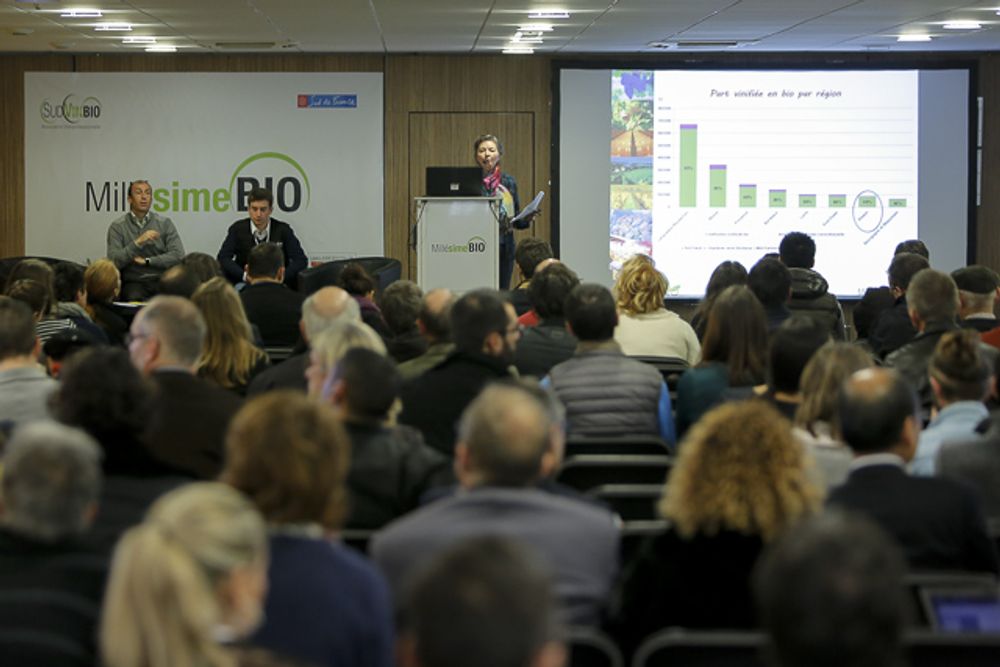
Seminar at Millésime Bio 2106
How important is the on-trade to Sud Vin Bio? (The Ipsos survey seems more focussed on the off trade)
We do not sell directly, we are a trade body promoting the interests of our members, organizing events and we also make research and provide our members with technical advice, so that’s more a question for a producer.
The survey did not specifically focus on the on or the off- trade, actually we did not ask consumers where they drink the wine.
Both are important, and the on-trade is very interesting for organic wines because new consumers need more information and the waiter/ sommelier/ barman can give explanations about these wines.
A study, cited by Agence Bio during their conference at Millésime Bio, showed that in France in 2014:
- 14% of organic wine volumes were sold by the on-trade
- More than 50% of restaurants had organic wine on their wine list (versus 40% in 2011), and they offered an average of 5 references
How important do you think the sustainability issue is for organic wine producers and also trade buyers?
For producers this is the main reason why they are organic! As they are the ones spraying the vines and living close to them, etc. They don’t want to get poisoned nor poison and ruin the biodiversity, water resources etc. (did you know that the cancer rate is extremely high among farmers?).
Following the organic rules makes them much closer to their job, which gets more interesting and fulfilling: they are not following a spraying calendar, they are good growers and skilled technicians, who look at their vines to understand what’s going on and what they should do to help the vine grow healthily, and in the end, offer a good wine to consumers. There is also a pride to produce chemical-free wines.
Moreover, producing organically is not an easy job, you have to be a skilled farmer as I said, and you have more cost: the authorised treatments are more expensive and they need to hire more employees (as chemicals are replaced by workers, directly doing manual work in the vineyard or driving tractors). So, those who turn to organics just because they think they will sell a more expensive wine are often discouraged when the first problems occur.
Regarding trade buyers, I think that you have all kinds of profiles. But in France now, they have to have at least one organic wine in their list because there is a demand for it. Some buyers are really involved and convinced by the sustainability issue, in France, in Denmark, in Germany, and in the UK too.
Is organic a big issue for on-trade buyers/ sommeliers?
They give priority to quality, and it is more and more acknowledged now, that organic wines are quality wines. For example, La Romanée Conti, Pontet-Canet and Château Guiraud converted to organics recently and say it is a condition to obtain quality. But I think that it is still complicated sometimes for them, to understand what an organic wine is, or to explain it to a non-connoisseur consumer as lots of clichés still stick to organics (like hippie/ hipster-stuff).
The Ipsos survey shows that people perceive organic wine to be expensive. What can be done to counter this perception?
We have to better explain what I wrote above: the work and costs surplus, and the real risks to lose your vintage too, as the list of products you can use to fight diseases or pests is small. If consumers understand that part, they will accept to pay a bit more, but that’s not even a rule: you can find organic wines at all prices, really. They’re just not entry-level products, or few of them are, and that’s also part of the explanation. If you compare them with similar range wines (non-organic), you don’t see such a price difference.
Another thing, actually, people do not pay a fair price for their food nowadays. Public subsidies compensate for the low money the farmers make all over Europe. Organic food (and drinks) prices are much more realistic, and that sector is far from receiving all the subsidies the non-organic sectors does receive. That explains a lot!
The Ipsos survey shows that the main reason people do not buy organic wine is because they are lacking information about the product. What can be done to educate the customer?
My previous answer goes here too!
